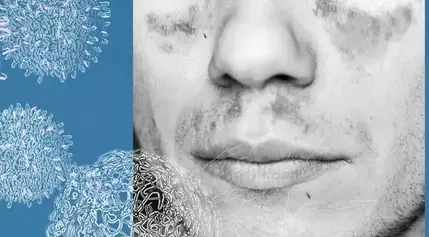Lupus, a complex and unpredictable autoimmune disease, has long been considered incurable. However, a groundbreaking study from Germany has shattered this belief, offering a glimmer of hope for those living with this debilitating condition. The study's findings, which showed complete remission in five lupus patients after undergoing a repurposed cancer treatment called CAR-T-cell therapy, have ignited a new wave of optimism in the medical community.Pioneering a Paradigm Shift in Autoimmune Disease Treatment
Unraveling the Mysteries of Lupus
Lupus is a notoriously unpredictable disease, affecting each patient in unique ways. While some may experience facial lesions, others may face kidney failure or fluid around the lungs. Despite the diverse manifestations, one constant remains: lupus is a lifelong condition with no known cure. The origins of autoimmune diseases like lupus often remain elusive, leaving patients and doctors alike grappling with the challenges of managing the condition.
A Groundbreaking Breakthrough
Two years ago, a study conducted in Germany shook the foundations of conventional wisdom. Five patients with uncontrolled lupus underwent a revolutionary treatment – CAR-T-cell therapy, a repurposed cancer treatment that effectively wiped out their rogue immune cells. The results were nothing short of astounding: all five patients went into complete remission, with the first treated patient remaining symptom-free for nearly four years.
Expanding the Horizons of CAR-T Therapy
The success of CAR-T-cell therapy in treating lupus has sparked a surge of optimism and a flurry of activity in the medical community. More than 40 people with lupus worldwide have now undergone this treatment, and the majority have achieved drug-free remission. While it's too early to declare these patients cured for life, the possibility of a lasting cure has become a tantalizing reality.
Tackling Autoimmune Diseases Beyond Lupus
The potential of CAR-T-cell therapy extends far beyond lupus. Doctors are now exploring its application in treating other autoimmune diseases, including multiple sclerosis, myositis, and myasthenia gravis. The success of this approach has inspired researchers to explore alternative, more accessible strategies borrowed from cancer therapy, such as the use of donor T cells, natural killer cells, and bispecific T-cell engagers (BiTEs). These simpler and more cost-effective methods may ultimately prove to be the key to making cutting-edge autoimmune disease treatments widely available.
Overcoming the Challenges of CAR-T Therapy
While the results of CAR-T-cell therapy for autoimmune diseases have been nothing short of remarkable, the treatment is not without its challenges. The process is complex, time-consuming, and expensive, with each patient's cells requiring individual engineering. Additionally, the need for chemotherapy to prepare the patient's immune system and the potential for flare-ups during the tapering of existing medications add to the risks and complications.
The Path Forward: Simpler, More Accessible Therapies
As the medical community grapples with the limitations of CAR-T-cell therapy, researchers are exploring alternative approaches that may ultimately prove more practical and scalable. Strategies like the use of donor T cells, natural killer cells, and BiTEs offer the promise of simpler, faster, and more cost-effective treatments. While these methods may not penetrate as deeply into the tissues where B cells reside, they could still be "good enough" to revolutionize the treatment of autoimmune diseases.
A Glimmer of Hope for Millions
The groundbreaking success of CAR-T-cell therapy in treating lupus has ignited a new era of hope for the millions of people living with autoimmune diseases. While the current iteration of the treatment may not be widely accessible, the insights gained from this pioneering work have paved the way for the development of more practical and scalable therapies. As the medical community continues to push the boundaries of what's possible, the prospect of a future where autoimmune diseases are no longer a lifelong burden has become a tantalizing reality.

